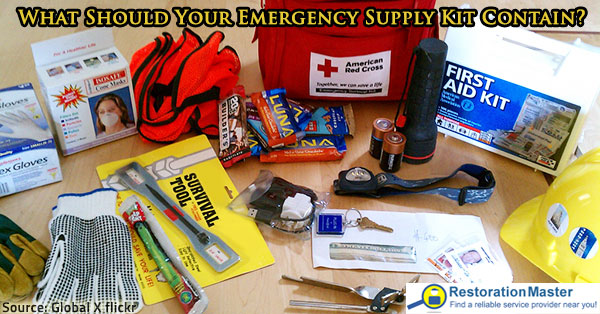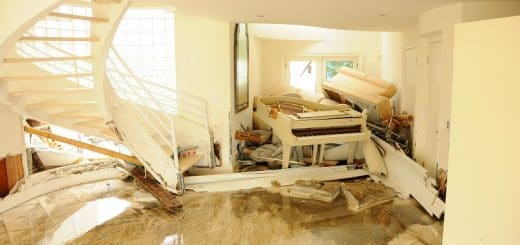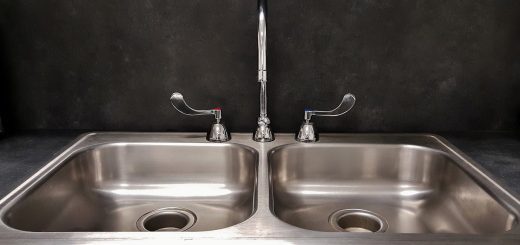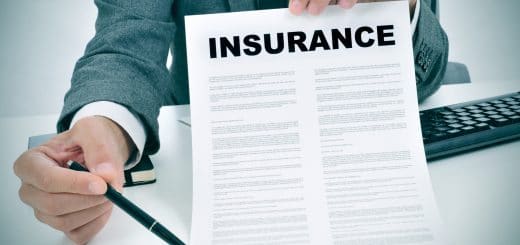Fall Season Safety Tips: Protecting Your Family and Property
It is important to keep your property and your family safe during the fall season. You should take the proper precautions, do the necessary maintenanceMaintenance is the routine care, inspection, and repair of a... More of your property to avoid unnecessary damage, and be prepared for weather emergencies if you live in an area where they might be common.
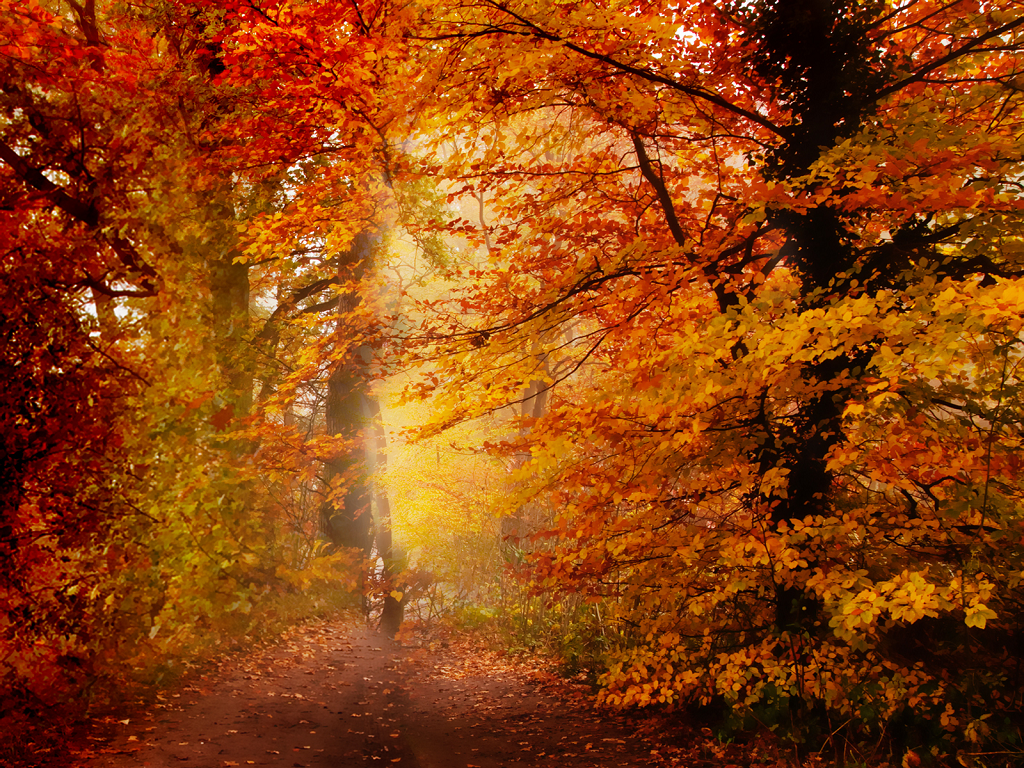
The Charm and Challenges of the Fall Season
As the season changes to fall, we will experience cooler weather and changing leaves. However, with the change in seasons, we may also experience flooding, hazards related to leaves, reduced visibility on the road, and even fires.
It is very important to stay safe during the fall season. Here are some things you should consider when it comes to safety:
- Be a safe driver:
As it gets colder, it will get dark sooner so you will need to turn the lights on earlier. Also, the roads may be slick. Be sure to replace the windshield wipers before fall begins.
- Prevent falls:
Make sure to take all the possible precautions when it comes to your workplace and your home so that you can prevent falls. Fall is the season when most falls happen. Make sure you are wearing proper shoes for the weather so you can prevent injury.
- Be prepared for changing weather:
Always dress according to the weather as fall conditions can be unpredictable, so you should be prepared.
Home Safety
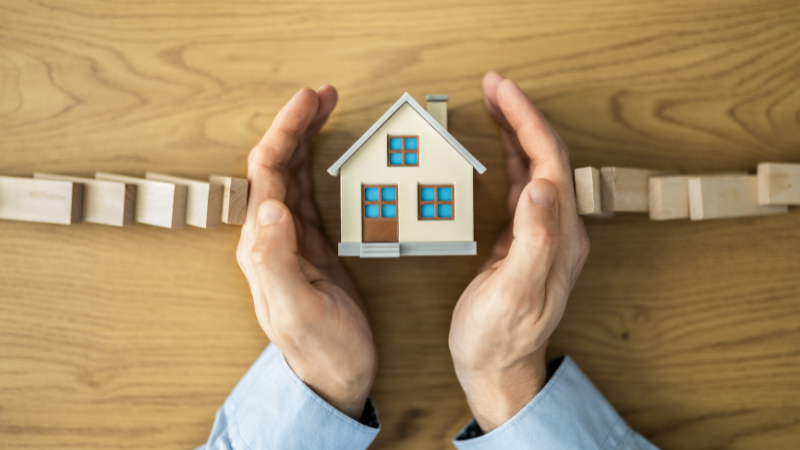
There are a few things that you need to do to prepare your home for the cold weather. This includes proper maintenanceMaintenance is the routine care, inspection, and repair of a... More of all the things that keep your home running smoothly. This includes checking your HVAC system and filters, roof, the weatherstrips on your doors, and sealing your foundation. Here is what you need to do for each:
- HVAC inspectionInspection is the careful examination and assessment of a pr... More
Get your HVAC system checked by a professional so that you can make sure it is in great shape for the colder weather.
- Inspect your outer walls:
Make sure that your outer walls are in good condition, and that there are no cracks. If there are cracks, make sure you get them fixed before the weather gets colder.
- Change the return filters:
Change out your return filters on your forced heating system.
- Check your plumbing system:
To avoid burst pipes, make sure to get your plumbing system checked.
- Get your roof checked:
It is important to get your roof checked by a professional to ensure that it can stand up to the upcoming winter weather.
- Check your insulationInsulation is a material used in buildings to reduce the tra... More:
Make sure that you have the proper weather strip on your doors and caulk around the windows to keep the heat in and the cold out.
- Seal up your driveway and foundation:
If you have cracks in your driveway and foundation, make sure to get them sealed so that you do not further damage them during cold weather.
Fire Safety
It is extremely important to have the proper fire safety precautions in place at your home. This will help prevent damaging and costly fires and possible harm to you and your family. Any fire damage that occurs within your home should be addressed immediately by a professional.
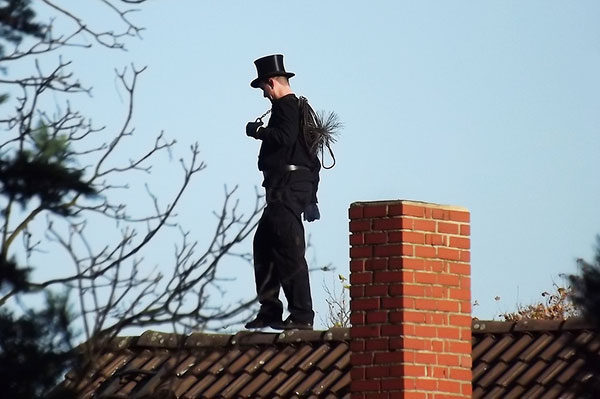
A chimney sweep will not only bring you good luck but will also ensure the fire safety of your home.
You should check your smoke detectors to make sure they are working properly and change the batteries if necessary. Smoke detectors are designed to alert you to a fire in case you are asleep. They should be placed in designated spaces around your home, depending on the size of your property.
Carbon Monoxide (CO) is a tasteless and odorless gas that is very toxic to humans. This is why a carbon monoxide detector is crucial to detecting gas in your home. There are various types of carbon monoxide detectors such as plug-in, battery-operated, and hardwired models.
For optimal safety, you should have smoke detectors and a carbon monoxide detector in your home. If your home is damaged by fire or smoke, a fire damage restoration professional can effectively clean up the damage.
If you have a fireplace, you should also take proper precautions to clean and maintain it so you can prevent fires while using it. Here are a few tips:
- Never leave the fire unattended:
You should never use a fireplace as your primary heating source as it should never be unattended.
- Move any flammable objects:
You should keep any flammable objects away from the fireplace area to prevent fires.
- Make sure to use a carbon monoxide detector:
Every level of your home should have a working carbon monoxide detector.
- A working fire extinguisher should be readily available:
Always have a working fire extinguisher ready so that you can put out a fire if needed.
- Have a fireplace screen:
If you have a wood-burning fireplace, you need to have a fireplace screen to catch stray embers.
Electrical Safety
You need to make sure that your electrical system is inspected and that any issues are properly addressed. Without proper maintenanceMaintenance is the routine care, inspection, and repair of a... More, you may end up with an electrical fire that can cause damage to your property.
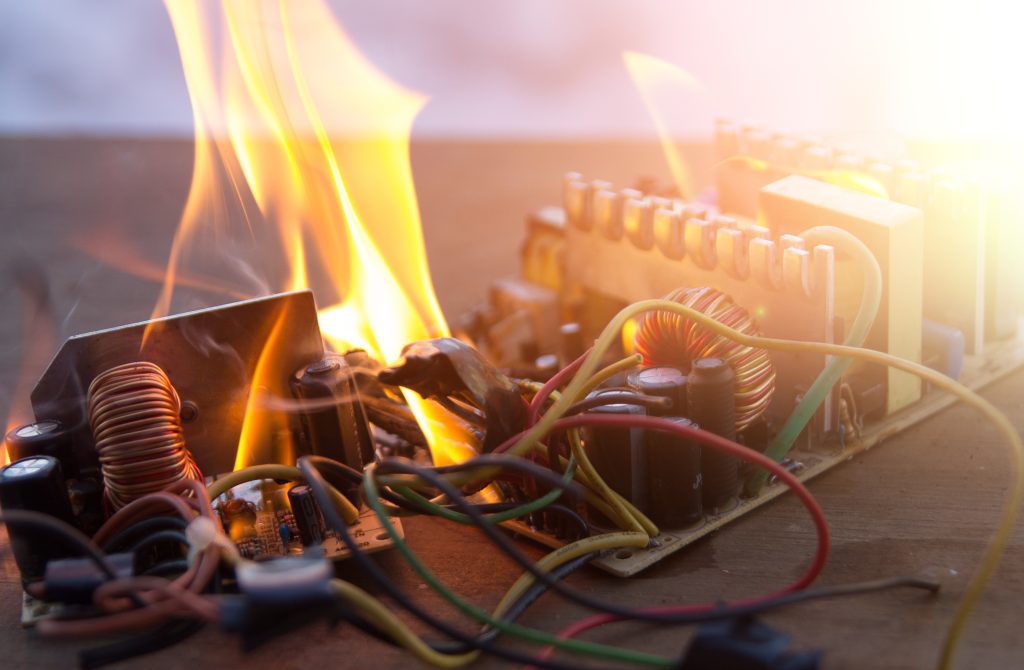
To ensure that your electrical system works properly, maintenanceMaintenance is the routine care, inspection, and repair of a... More and inspections are crucial. The American of Home Inspectors (ASHI) recommends that you get your home inspected by a qualified electrician every few years. Here are some things you can do to maintain your electrical system:
- Inspect your electrical system on a regular basis:
It is crucial to have regular inspections of your electrical system done so you can avoid problems.
- Clean outlets and breakers:
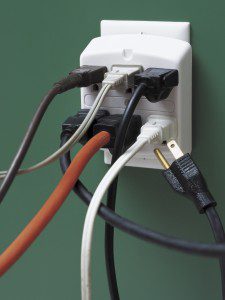
Your outlets and breakers should be cleaned regularly so they can function properly.
- You should not overload your outlets:
Always make sure to not have too many devices plugged into each outlet or it can leadLead is a heavy metal that can be toxic to humans, especiall... More to an electrical hazard.
- Check your cords for damage:
You should periodically check your cords for damage or wear and replace them.
- Check your electrical appliances:
Regularly check your electrical appliances for signs of damage.
- Keep electricity and water away from each other:
Always make sure to keep any electrical appliances away from water sources.
- Call a professional:
If you see any issues with your electrical system and you are not able to handle them yourself, make sure to call an electrician.
You need to make sure that you use extension cords and outlets safely in your home, otherwise you may end up with a fire or another electrical issue. Here are some tips when it comes to electrical cord safety:
- Purchase extension cords that are labeled by Underwriters Laboratories (they should have a UL stamp).
- Extension cords should be kept away from standing water and snow.
- You should always inspect cords for damage before using them.
- Never remove the cord’s grounding pin.
- Do not use a single power cord to run more than one appliance.
Home Security
One of the most important things you can do for you and your family is have a secure home. There are precautions you can take such as using locks, alarms, and surveillance systems to keep you safe.
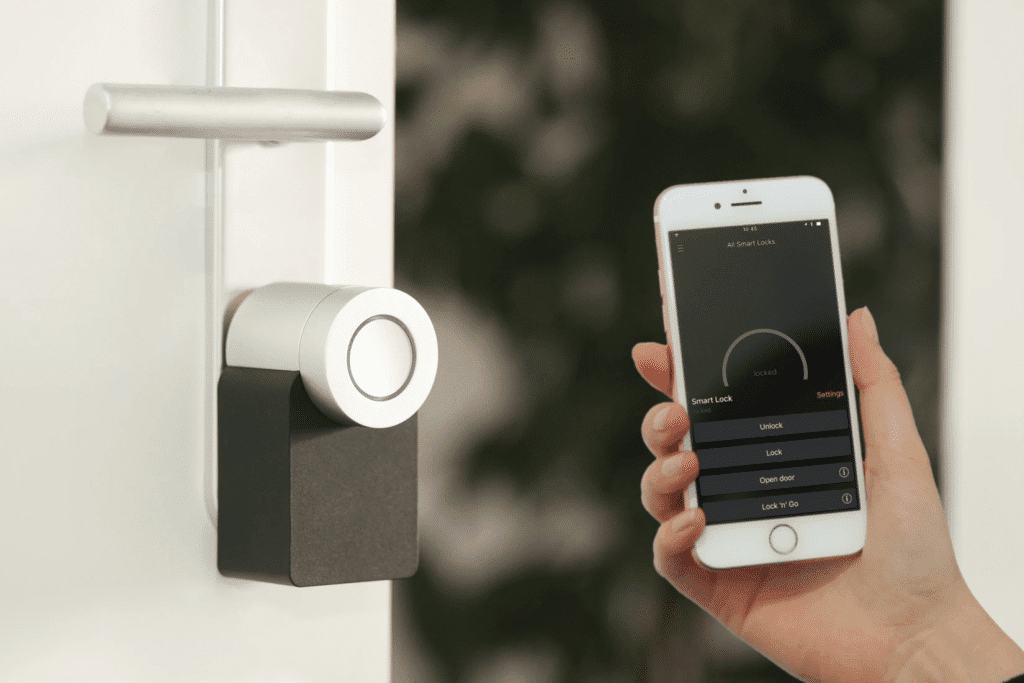
Smart locks are a great way to secure your home as they rely on sensors instead of people. It is also more affordable than hiring a security crew.
Surveillance systems are a great way to keep your home safe. Today, there are many smart security systems to choose from. The best choice for your home will depend on the size of your home, the customizability that you need, and the cost. A surveillance system will help you not only detect someone trying to break in, but it can detect fire, smoke, or carbon monoxide, and even water leaks. If it is a good home security system, it will also place an automated call to the central monitoringMonitoring is the ongoing observation and measurement of con... More service, first responders, or the occupant.
To safeguard your property and family from burglaries during darker evenings, you need to make sure you have the proper lights around your home, preferably motion triggering lights. Check for any vulnerable spots around your home that could be used by burglars. You can also ask the local police department to help you identify weak points. If you don’t have a fence, consider building one to keep unwanted visitors away. Also, make sure that any vulnerable items such as electronics, art, or other expensive items are not visible through windows. Instead keep them out of sight.
Outdoor Safety
Make sure to take great care of your yard so that it keeps your property safe during the fall season.
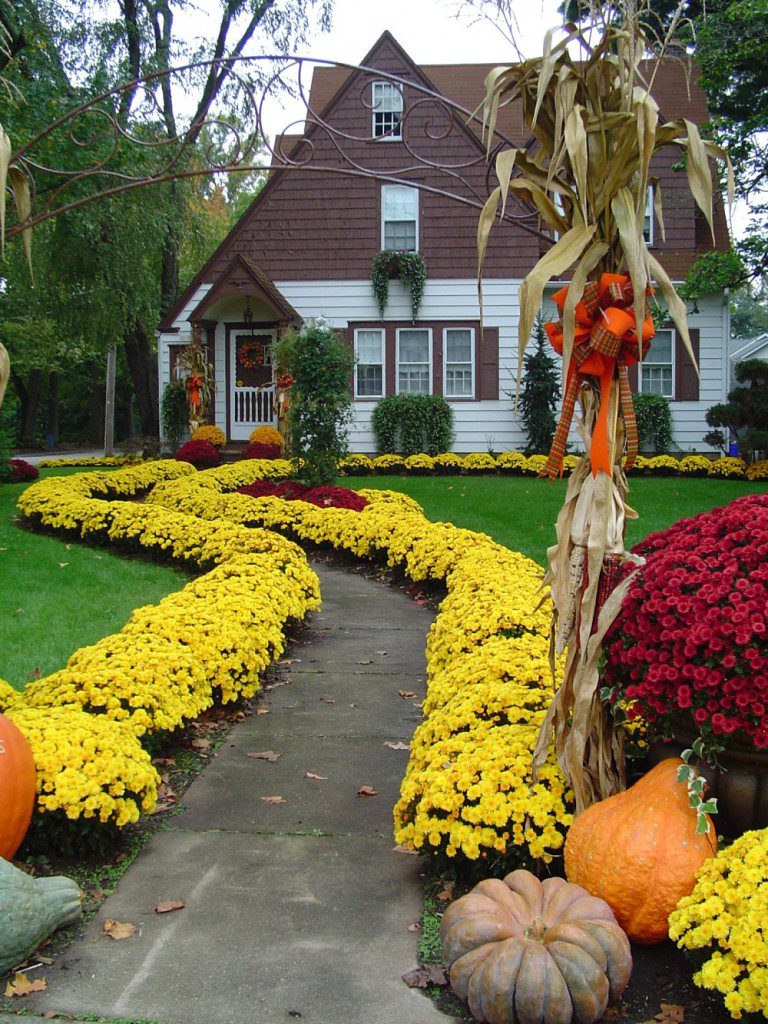
Yard Maintenance
To keep your grass looking healthy for next spring, follow these maintenanceMaintenance is the routine care, inspection, and repair of a... More tips:
- Remove fallen leaves:
Rake off any leaves on your lawn. If you do not have too many, you can mow over them and chop them into smaller pieces. This will help add nutrients into the soil.
- Lay sod or seed:
In the fall, the temperature drops and there is usually rain which helps create great conditions for creating new lawns or repairing your lawn if needed.
- Aerate your lawn:
Make sure to aerate any high-traffic areas of your lawn yearly to help loosen any compacted soil, otherwise aerating every 2-3 years will work.
- Remove weeds:
As it becomes cooler, the weeds will grove even more, so it is important to get them removed.
- Raise your mower blade:
Make sure to keep your lawn taller as it will help with root growth and ensure that your lawn survives the winter.
Do not forget to clean your gutters. Clogged gutters can cause major issues with your roof and can even damage the foundation of your home. They should be cleaned regularly to avoid clogging and additional damage.
If you have trees around your home, make sure to get them inspected and trimmed annually to make sure that they do not cause further damage to your home.
Preparing for Winter Storms
Winter storms can be dangerous and even deadly in some cases. It is important to be prepared for winter storms so that your home does not end up with damage that can be costly to repairRepair is the act of fixing or restoring damaged property, m... More. Winter conditions involving ice and snow can leadLead is a heavy metal that can be toxic to humans, especiall... More to water damage and even structural damage to your home.
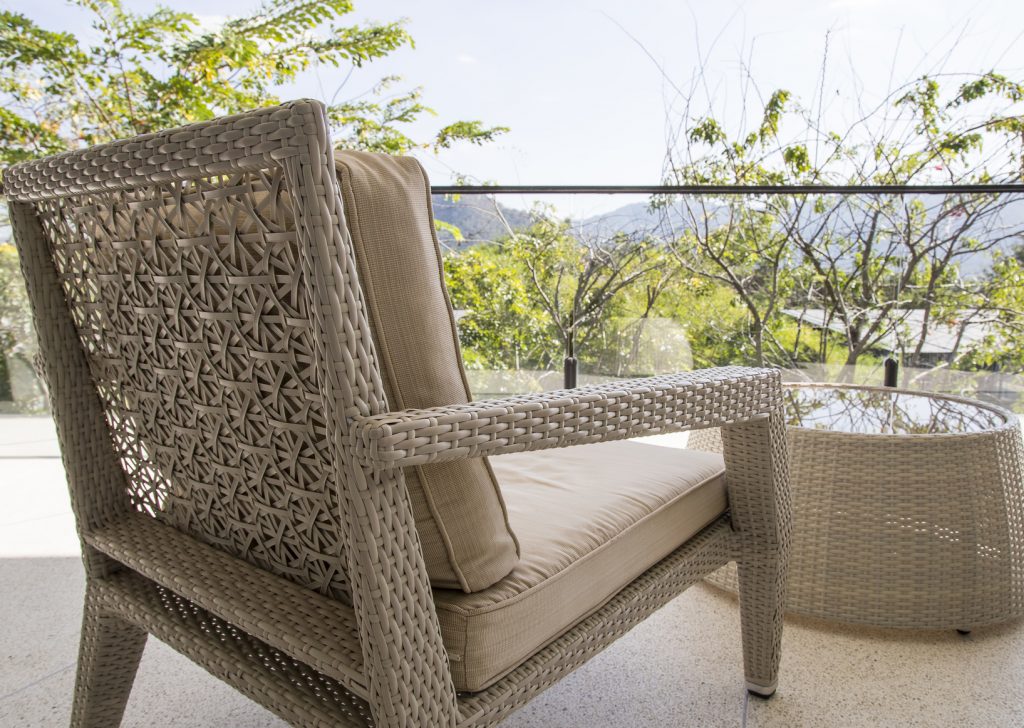
You should make sure to store your outdoor furniture and equipment properly, so they are not damaged by winter storms. Here are some tips:
- Clean the outdoor furniture before you store it:
Remove dirt and debris and clen the frames with warm water and detergent. If there are stains, you can use a small amount of bleach to scrub them away.
- Decide on where and how you will store your outdoor furniture:
To store your outdoor furniture, you will need to make space in your garage, or an area outdoors where it can be protected from elements, such as a shed.
- Fix any damage before storing:
If you notice your outdoor furniture is damaged, make sure to fix it before you store it. Depending on the material, take the proper steps to fix it so you can help it last a long time.
Removing snow and ice is another way to stay safe around your home. You should be aware of the proper way to remove snow and ice. Here are some tips:
- Use cooking spray on a snow shovel so the snow slides off easier.
- Instead of waiting for it to finish falling, clear snow periodically.
- Wear your socks over your shoes to increase traction in slippery areas.
- To help melt ice, you can create a salt substitute by using dish soap, rubbing alcohol, and water.
- Make safety a priority.
Halloween Safety
Halloween is a fun family friendly holiday that is fun for children and adults. However, it is important to take certain safety precautions when it comes to decorating and trick or treating to ensure both adults and children are safe.
When it comes to decorating, make sure to follow these tips to decorate your home safely for Halloween:
- Your porch and front yard should be clear of any tripping hazards.
- All burned out bulbs in outdoor lights should be replaced.
- Instead of using real candles in your Jack-o-lanterns, use battery-operated candles.
- During trick-or-treating times, keep your pets restrained or in another room.
- Make sure to secure any inflatable decorations.

Trick-or-treating is fun for children, however, there are some safety precautions you should consider before they participate in this activity:
- An adult should always accompany young children when going around the neighborhood.
- If you have an older child, they should stay a in a group and stay in communication with an adult.
- All homemade treats should be avoided.
- All candy should be inspected before it is consumed.
- Children should only go to well-lit homes.
- Children should never enter any homes or cars for treats.
Health and Wellness
The fall season is also the season for allergies, so you should take all possible precautions to stay as healthy as possible. This includes avoiding time outdoors when pollen is high, and taking proper medications to help you when your allergies flare up.
Seasonal Allergies
Seasonal allergies, also known as hay fever, happen when your immune system overreacts to outdoor allergens such as pollen. Most people are allergic to pollen from wind-pollenated plants like trees, grasses, and weeds. If you think you have allergies, it is always best to consult a healthcare professional to get proper diagnosis and treatment established.
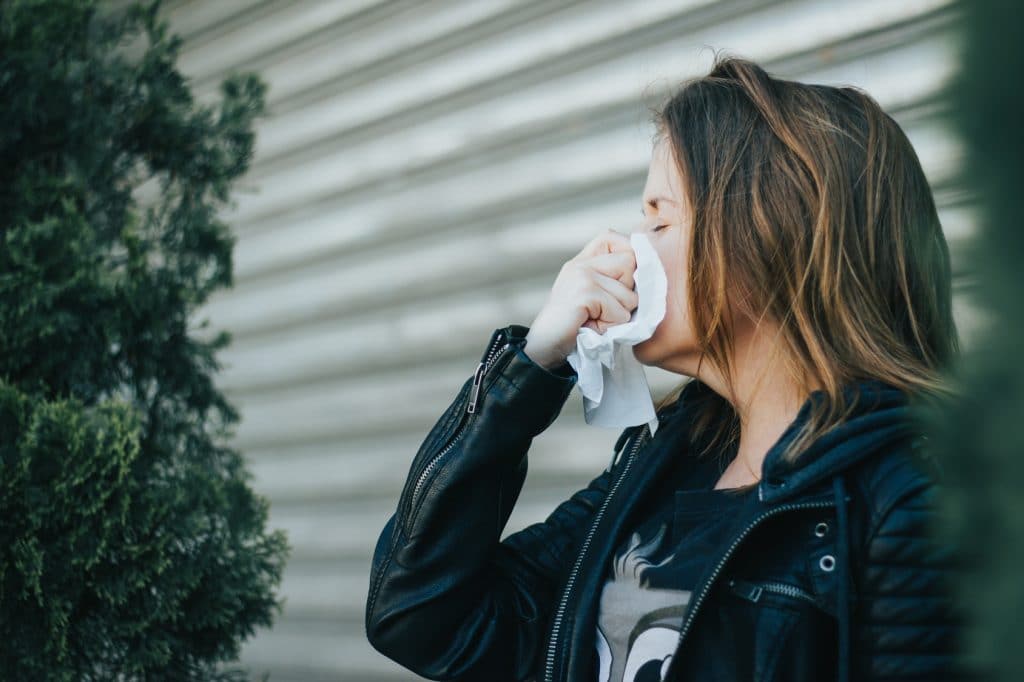
To help manage your seasonal allergies, you can try and reduce your exposure to allergens by staying indoors on dry and windy days. Also, when the pollen counts are high, you can take over-the-counter antihistamines, decongestants, and nasal sprays to relieve symptoms.
Another way to help yourself if you have allergies is for your indoor space to be allergy friendly. Here are some tips:
- Always keep your home clean – This will help reduce the number of allergens in the air. Use a vacuum with a HEPA filter to remove all dust and pet dander. Also, dust all surfaces with a damp cloth.
- Control the humidityHumidity is the amount of moisture or water vapor present in... More in the home – Make sure the humidityHumidity is the amount of moisture or water vapor present in... More in your home is below 50%.
- Use an air purifier – They will help remove allergens from the air. This includes pollen, dust, and pet dander.
- You should not smoke indoors – This can cause irritation of the eyes, nose, and throat.
- Use allergen- friendly materials – Choose materials that are less likely to have allergens such as leather or vinylVinyl is a durable synthetic plastic material commonly used ... More as opposed to fabric upholstery.
- Keep your pets clean – Make sure your pet is groomed regularly to reduce pet dander in your home.
- Use only natural cleaning products – Avoid cleaning products that are made with harsh chemicals.
Flu Season Preparation
It is important to ensure you take the proper precautions so that you do not get sick during flu season. The best precaution is to get a flu vaccine which will protect you from various flu strains. Also, you need to ensure that you wash your hands properly as well as sanitize all high touch areas in your home regularly to help prevent flu.
Emergency Preparedness
You should ensure that you have a proper plan of action in case you face an emergency. You and your family should know what to do in case of an emergency, what to bring when evacuating, and where to meet in case you are unable to get in touch with each other.
Creating a Family Emergency Plan
Your family should be prepared for an emergency such as a fire as these emergencies can happen at any time. This includes having necessary supplies packed including food, water, a radio, and anything else your family may need in an emergency. Make sure to check out the American Red Cross website for more information on how to create an emergency plan for your family.
The evacuation route and meeting points should be established within the emergency plan, and everyone should know exactly where they are. This will help everyone react quickly if there is an emergency.
You should have all the contact information for your family in one place that is easily accessible to everyone in your household. The emergency plan that you create with your family should be kept in a central location in your home such as on your fridge. You should practice the emergency plan with your family members often so that everyone knows what to do in case of an emergency.
Assembling an Emergency Kit
In case of an emergency, you should have an emergency kit assembled so that you have all the supplies you may need. The basic emergency supply kit should include these items:
- Water (one gallon per person per day for several days)
- Food (to last at least several days)
- Battery-powered radio
- Flashlight
- First aid kit
In case of a power outage or a disaster, you need to have the proper supplies prepared. Here are some things to get ready:
- Container to store supplies
- Water for drinking and sanitation
- Can opener
- Solar charger power bank
- Flashlights, headlamps, lanterns
- Food, water, and medical essentials.
Home Maintenance Checklist
Maintaining your home is extremely important as the weather gets colder. It will help you prevent costly damage to your roof, foundation, gutters, and even the structureStructure refers to the framework or components of a buildin... More of your home. This is why taking proper steps to prevent damage can pay off in the end as it will help your home better serve you for a long time.
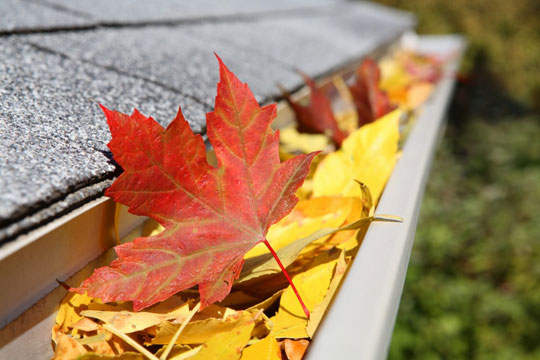
Fall Maintenance Tasks
Make sure to get all the fall maintenance tasks done before the weather gets too cold. This includes getting your roof, HVAC, electric system, and plumbing checked. You should winterizeTo winterize is the process of preparing a building, plumbin... More your yard and be prepared for winter storms. Also, make sure that you are prepared for any fire emergencies and home security emergencies, take care of yourself and your loved one’s during seasonal allergies and flu season, and finally, have an emergency plan and a kit ready in case an emergency strikes you and your family.
You should never forget to seal doors and windows, to make sure that heat stays in, and to help conserve energy. Make sure that the sealing process is done before the cold weather starts. If you are unable to do this project yourself, reach out to a professional so they can help you.
To help get the outdoor portion of your home ready for the winter, make sure to insulate any piping and outdoor faucets so they do not freeze. Simply shut off the water supply to the outside and make sure all pipes are empty. Next, wrap the pipes with insulationInsulation is a material used in buildings to reduce the tra... More to help prevent them from getting damaged from the elements. If they do freeze, they can burst and result in significant water damage.
Seasonal Cleaning
Effective seasonal cleaning of your home inside and outside will help make your home a safer and more comfortable environment to spend the winter.
You should make sure to properly clean your home indoors to prevent allergies and pests. Use a HEPA vacuum to clean, dust with a wet cloth, keep your pets clean, control humidityHumidity is the amount of moisture or water vapor present in... More with a humidifier, and do not smoke indoors. Doing all of this will help keep your home clean and your allergies away. Your summer items should be cleaned, repaired if needed, and stored away from the elements.
Keep Your Family and Your Home Safe This Fall
It is important for you to take the right precautions to keep yourself and your family safe during the fall season. Whether it is during trick-or-treating with your kids or just doing the proper maintenanceMaintenance is the routine care, inspection, and repair of a... More on your roof or plumbing, all these precautions together make for a safer home. Taking proactive steps to protect your home from upcoming cold weather pays off in the end as it helps protect your family and prevent costly damage to your property.
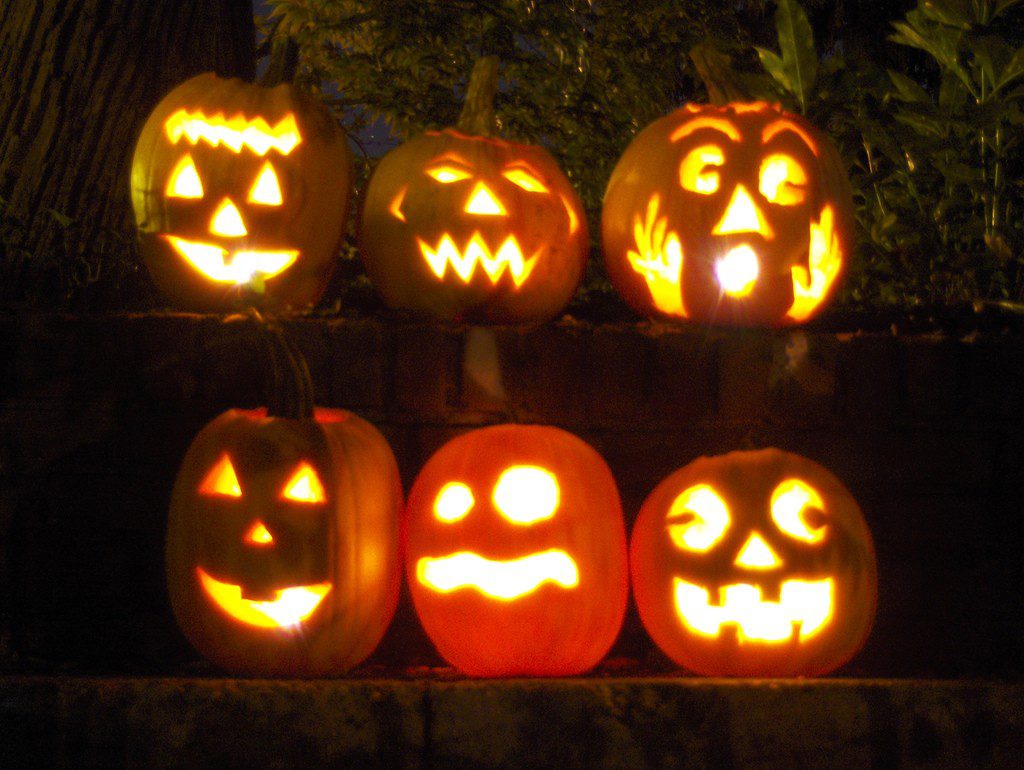
Throughout the fall season, you should make sure to stay vigilant. Take care of your home inside and out so that it can serve you and your family for a long time.
Whether you’ve experienced damage caused by water damage, winter storms, or a fire, make sure to reach out to a disaster restoration professional right away. RestorationRestoration is the process of returning a property to its pr... More professionals will respond to your call immediately to limit the damage and start the restorationRestoration is the process of returning a property to its pr... More process. They are fully equipped to dry water damaged homes as well as provide mold removal for moldMold is a type of fungus that grows in damp or humid conditi... More growth caused by water damage. They can also clean up the effects of fire and smoke and rebuild the damage to fully restore your property back to its original state.










